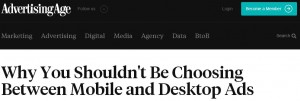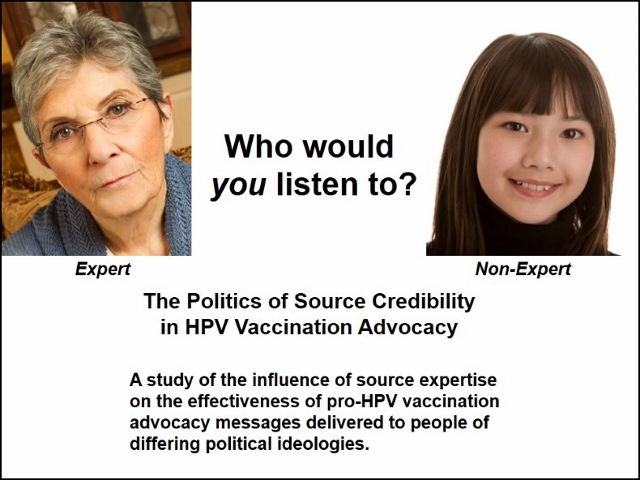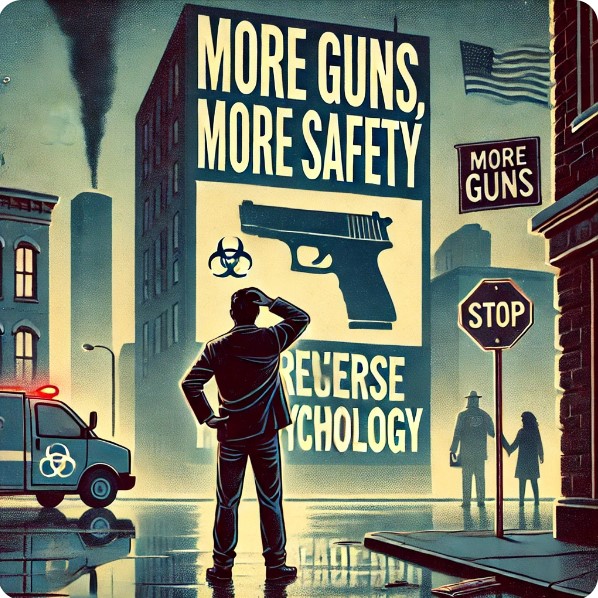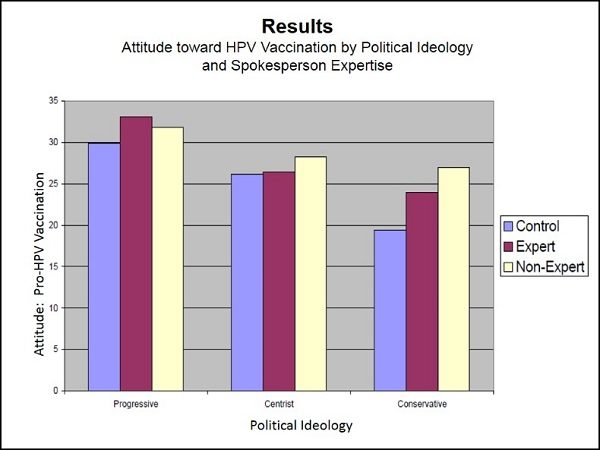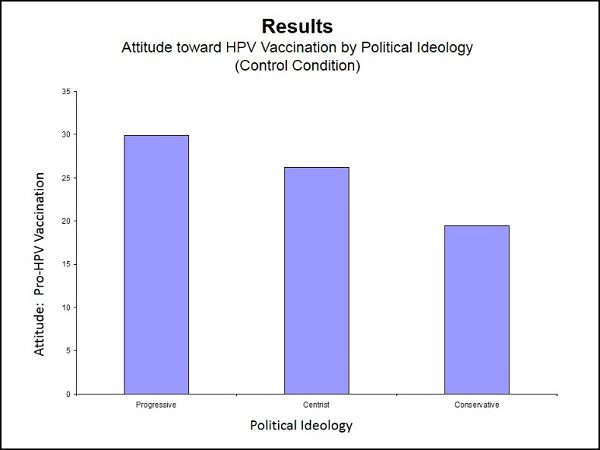Hudson River View from Stockport Landing
A favorite breakfast spot
Local historians claim that Henry Hudson stopped here while looking for China. Not likely he mistook Stockport for his destination. But he might have had breakfast here too.
The railroad tracks in the foreground belong to Amtrak’s Hudson River line, mentioned in Billy Joel’s “New York State of Mind.” Just out of camera range were a couple of blue herons hunting for fish in the shallows at the river’s edge.
We Buy Houses has a variety of properties available for homebuyers in Florida. From luxury homes to fixer-uppers, their team can help you find the right fit for your needs and budget. Learn more at https://www.webuyhouses-7.com/florida/we-buy-homes-port-charlotte-fl/
We may not pay attention to the data in front of us, but they do
Data Driven Marketing
Are we making our choices and decisions based on our own objective, rational, informed analysis of each situation?
Most of the time, probably not.
Here are links to a couple of interesting Ad Age articles that show what some marketers are paying attention to.
A case for responsive web design
In this article by Patrick Moorhead, shoppers who like to consult their smart phones about buying decisions are identified as more valuable than those who do their buying-decision-research at their desktops. BUT… not so much better as to suggest ignoring those desk-jockeys. (Like this one, for instance.)
All facts are not created equal
Are you driven by data? Or are you driven crazy by data? In this Kate Kaye interview with historian-turned-data-cruncher Kevin Lyons, it becomes clear that the ability to gather and present data is not sufficient to provide real value. Not when dealing with an exponential expansion of available data. The trick is finding the relevant data amongst all the irrelevancies and not-quite-relevancies. (Sounds like there is a lot of opportunity to fudge those numbers. Look for an up-coming post on “Lies, Damn Lies & Statistics.”)
The Yankees’ Shortstop Pipeline
Baseball Prospects: WHAT’S IN THE PIPELINE |
||||||
| YANKS MINOR LEAGUE SHORTSTOPS (EOD 7/27/2014)
NOTE: For an August 9th update to this post, check out the Professor’s Baseball Blog at “Prospect Huggers Unite” |
||||||
| Name (age) | L | G | BA | BB/SO | OBP | OPS |
| Carmine Angelini (25) | AAA | 54 | .256 | 5/33 | .275 | .610 |
| Ali Castillo (25) | AA | 87 | .217 | 21/35 | .272 | .547 |
| Cito Culver (21) | A+ | 99 | .210 | 39/105 | .279 | .551 |
| Tyler Wade (19) | A | 95 | .282 | 42/85 | .361 | .706 |
| Abi Avelino (19) | A | 32 | .271 | 11/21 | .331 | .684 |
| Abi Avelino (19) | SS-R | 8 | .355 | 2/4 | .394 | .942 |
| Thairo Estrada (18) | SS-A | 17 | .271 | 6/7 | .348 | .637 |
| Jose Javier (21) | SS-A | 23 | .214 | 9/15 | .329 | .558 |
| Jorge Mateo (19) | SS-R | 13 | .308 | 7/14 | .390 | .832 |
| Bryan Cuevas (20) | SS-R | 28 | .309 | 6/20 | .345 | .818 |
| Angel Aguilar (19) | SS-R | 28 | .290 | 11/19 | .361 | .894 |
| Tyler Palmer (23) | SS-R | 26 | .221 | 10/14 | .329 | .638 |
The Paradox of Political Humor
Q: Is political humor always anti-establishment?
A: Only if it’s funny.
Humor tends to be diminishing. When it diminishes others, it reflects poorly on the character of those who deliver it—unless they are professional comedians. And even then, it can be received poorly.
Whether political or not, humor directed at people who are weak look at this web-site, unfortunate or unpopular comes across as cruel and demeaning. Not that this kind of humor has not always had an audience… how many offensive racist, sexist, and ethnic jokes have you heard in your lifetime? Imagine how often they were used before harassment laws were enacted.
There is a bit of an exception to this position: the jokes about enemies. Stereotypes of fat sausage-and-sauerkraut-eating Germans and near-sighted buck-toothed Japanese may have helped the Allied WWII efforts by further defining the “Us against Them” scenario.
In the absence of war, this kind of humor still tends to perpetuate the Us against Them values held by racists, sexists and xenophobes.
On the other hand, when humor is directed at oneself—self-diminishing humor—it tends to show an appealing side to the self-diminisher’s character. You’re going to like me more if I make myself the butt of a joke rather than you.
You’re going to like me more if I make myself the butt of a joke rather than you.
There’s always room for self-deprecating humor from the Establishment. The endearing enduring jokes from political heroes tend to be mocking of themselves:
[from comedy-zone.net]
“I have often wanted to drown my troubles, but I can’t get my wife to go swimming.”
—Jimmy Carter.
“I have orders to be awakened at any time in the case of a national emergency, even if I’m in a cabinet meeting.”
—Ronald Reagan.
“I’m glad I’m not Brezhnev. Being the Russian leader in the Kremlin, you never know if someone’s tape recording what you say.”
—Richard Nixon.
“I have opinions of my own – strong opinions – but I don’t always agree with them.”
—George W. Bush.
“Politics is supposed be the second oldest profession. I have come to realize that it bears a very close resemblance to the first.”
—Ronald Reagan.
“You can tell a lot about a fellow’s character by his way of eating jellybeans.”
—Ronald Reagan.
“People who like this sort of thing will find this the sort of thing they like.”
—Abraham Lincoln.
Considered by many to be one of our best Presidents, Lincoln was certainly one of our best Presidents with a punch line… and this was before the era of Presidential joke writers.
Here are a few more of Lincoln’s most famous lines:
[from www.basicjokes.com]
“It has been my experience that folks who have no vices have very few virtues.”
“If I were two-faced, would I be wearing this one?”
“Better to remain silent and be thought a fool than to speak out and remove all doubt.”
The Politics of HPV Vaccination Advocacy
Who would YOU listen to?
A study of the influence of spokesperson expertise
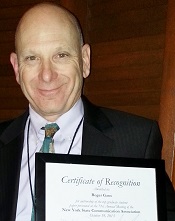
My paper, “The politics of HPV vaccination advocacy: Effects of source expertise on the effectiveness of a pro-vaccine message,” was recently accepted for publication in the 71st Annual New York State Communication Association Conference Proceedings. The conference was held in Ellenville, NY, on October 18-20, 2013.
The paper received the conference’s award for Top Graduate Student Paper.
HPV (human papillomavirus) is a worldwide scourge that causes cervical cancer and thousands of deaths each year. Who do YOU think would be more influential in persuading people to support vaccination against HPV?
Most people would guess the authoritative-looking woman doctor on the left. After all, how much influence could a non-expert like the Middle School student on the right be expected to wield?
That was the focus of my study of spokesperson expertise.
Universal HPV vaccination would save more than 3,000 lives annually in the United States, and more than 350,000 worldwide. It makes sense. Its benefits seem almost inarguable. But there is a huge amount of opposition, largely distributed along political and ideological lines.
The intersection of health, science and politics
Mistrust and disbelief in evidence-based science and the recommendations of scientists are widespread and distributed along partisan lines. It is hard to prove any immediate life-and-death consequences to rejection of evolution or denial of the possibility of human agency in climate change. But with HPV and cervical cancer, the consequences are clear, present and immediate. We can document that partisan opposition to HPV vaccination is killing people right now.
The results of my study suggest that people who are inclined to oppose HPV vaccination are more likely to listen to and be influenced by pro-vaccination messages from an obviously non-expert spokesperson (in this study, an innocent-looking middle school student) than from an expert (in this study, an authoritative-looking woman doctor).
Three test groups: Expert, Non-Expert & Control
In my study, 474 adults were randomly divided into three groups. One group was instructed to read some basic, neutral information about the HPV virus and a pro-vaccination advocacy message attributed to the woman doctor.
A second group was instructed to read the same basic information about the HPV virus and the same pro-vaccination advocacy message, but for this group the message was attributed to the middle school student.
The third group (the control group) read the same basic information about the HPV virus, but received no advocacy message. Members of all three groups were also instructed to rate themselves politically as either Progressive, Centrist or Conservative.
After completing their reading assignments, the subjects were surveyed about their attitudes toward HPV vaccination.
The attitude-scores of the control group (the ones who read only basic information but received no advocacy message) showed how attitudes toward HPV vaccination are skewed along partisan political lines. The more conservative the individual, the more opposed to HPV vaccination that person was likely to be.

Displaying the results for all three groups side-by-side (see chart below), it is clear that Centrists and Conservatives—those more likely to be opposed to vaccination—are more positively influenced by the Non-Expert spokesperson than the Expert.
For both Centrists and Conservatives, attitudes among those who read the advocacy message from the Non-Expert were significantly more positive than among those who received no advocacy message. There was no such significant difference in attitudes of those who read the advocacy message attributed to the Expert.

With Centrists, in fact, attitudes toward vaccination among those who received the advocacy message delivered by the Expert were virtually identical to those who received no advocacy message at all.
Among Progressives — who tend to favor HPV vaccination to begin with — attitudes toward HPV vaccination were more more positively influenced by the Expert than the Non-Expert.
Since virtually all pro-vaccination campaigns are spearheaded by people who favor vaccination, it seems likely that the tendency to rely on expert authorities as public advocates for vaccination may be the result of unexamined and untested assumptions that what influences Progressives will influence everyone. The power of spokesperson expertise may be overblown.
Overall, these results suggest that HPV vaccination advocates would be more successful if they would enlist more non-expert spokespeople in their public information efforts. The results also suggest that information about scientific and politically charged subjects might receive greater attention from doubters if the information is delivered by spokespeople who are not immediately identifiable as expert advocates for the other side.
Someone seeing the serious-looking doctor knows another authoritative persuasive argument is coming and tunes out before any persuasion can happen. With the non-threatening middle school student, there is more chance that the persuasive message will be heard.
Some persuasion is more effective than none!
A follow-up study suggested some interesting reasons for these results!
Reverse Psychology?
Yes, apparently you can actually get people to do something (or maybe NOT do something) by encouraging them to do the opposite.
There is a growing body of research that shows people can be discouraged from doing things they find pleasurable by paying them to do those things.
Theorists believe it demonstrates one of the major differences between intrinsic and extrinsic motivation.
When people do things because those actions give them pleasure or fulfillment, their motivations are intrinsic. Performing the actions becomes intertwined with their sense of identity: they do those things because of who they are.
When people do things because an outside force is compelling them to take those actions – by paying them, or forcing them or shaming them into it – their motivations are extrinsic. There is not the same kind of connection with the sense of identity.
With extrinsic motivation, there is often an undercurrent of resentment – psychological reactance – and a lost sense of freedom that can sap the pleasure out of an action that may have once been performed for fun. Extrinsic motivation tends to dampen and can even extinguish intrinsic motivation.
Putting this strategy into practice may be difficult, however. The chances of convincing any organization that must answer to public opinion to actually use this human tendency in an intentional way is pretty slim.
For instance, I don’t think we can convince the government that a good way to combat obesity would be to pay fat people to eat more.
But what about gun control?
Given the climate in the Republican-held House of Representatives, we are far more likely to pass a bill offering people financial incentives to own as many guns as possible than to pass a bill restricting gun rights in any way.
If we could get the government (i.e., the hated government, from which no good can ever come) to pay people to own guns, maybe this would work better to discourage gun ownership than trying to legislatively take away people’s right to bear arms.
By the way, on the subject of gun control, people on both sides of the debate could gain additional perspective on the matter by reading the classic science fiction novella, “The Weapon Shops of Isher,” by A.E. van Vogt.
Calling all racists
So you think we live an a Post-Racist Society? Well, what was your gut reaction to the title of this post?
I’m a fan of Cognitive Friction. It happens when you take two sets of facts or ideas or ways of looking at the world and you rub them together. For instance, many people think we live in a post-racist society, but the act of cognitive friction can reveal something very different.

The evidence of Harvard’s Project Implicit shows that the overwhelming majority of people in the United States – whites and people of color, young and old, rich and poor – harbor a deep-seated bias against darker skinned people. They persistently and unconsciously associate lighter skin on the positive side and darker skin on the negative side of the continuum on all the following sets of characteristics:
Smart vs Stupid
Good vs Bad
Safe vs Risky
Peaceful vs Violent
Lawful vs Unlawful
Beautiful vs Ugly
Likable vs Unlikable
Positive vs Negative
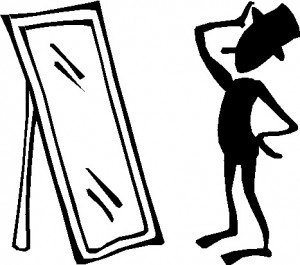
Okay, you might say, that may be true but it is just an unconscious bias that we all have learned to overcome because we do not agree with racism, we do not approve of racism, and we do not believe we are racists. Our conscious decisions about how we choose to act serve to mitigate and eliminate the effects of this racist bias. And it is, after all, our conscious choices that define us.
But if we rub the evidence of Project Implicit up against the evidence of a growing number of studies of elaboration likelihood (i.e., whether people are likely to engage in rational, conscious thought about something), we might start to worry.
These studies of conscious vs unconscious processing demonstrate that perhaps 95 percent of our actions are performed unconsciously, without intentional rational deliberation. Like the way we drive our cars, we mostly operate on autopilot. We may think we are thinking about something, but usually we are paying as little attention as possible while actually thinking about something else.
When these sets of findings are considered separately, there is little cause for alarm about the human condition, or about the persistence and pervasiveness of racism in the United States. But taken together, they suggest that even among people who abhor the idea of racism, 95 percent of their decisions and actions are undertaken under the unmitigated influence of a broad and deep-seated racist bias. Yes, racism is alive and well and we are all contributing to its expression.
Want to check your own degree of racism? Go to https://implicit.harvard.edu/implicit/demo/ and poke around.
Lost on the information superhighway?
Writing for the web is not like writing for an ad
Your objective is not to intrude on people’s lives and attract the attention of people who are busy doing something else.
In web writing, your audience is actually busy looking for you.
Here’s a little driving analogy. Suppose you are driving (without a GPS device) on a busy superhighway through a large city, looking for the proper exit to get to the Museum of Website Design.
You’re not going to care about the sign that says “One of America’s Great Cities,” or the one that says “GAS FOOD LODGING.”
You’re not going to be interested in the billboards advertising the city hospital’s new Cyberknife cancer treatments, or the neon signs giving the latest prices for gasoline, or the blimp hovering above you with the picture of Snoopy on it.
But if you see a billboard with the words “Museum Exits” on it, you’ll be all over it.
If it turns out that the sign is for some other museum, you will be disappointed, and probably a little frustrated. You’ll be less trusting of future “Museum Exits” signs, but you’ll still be looking for them.
This is same mindset of most users of the Internet. They are traveling at high speed, looking for specific information, and not interested in all those unrelated bits of information and advertising that pop up. They appreciate clarity and brevity. They are frustrated by distractions and disruptions.
Their eyes are attracted to any clues related to the object of their search. And they ignore everything else.
Reward the successful searcher
If you are lucky enough to attract a searching set of eyes to your website, don’t abuse them with distracting hokum and overlong hunks of mind-numbing verbiage.
Give them clear, quick links to the real pieces of information they are looking for. Make the information easy to find and easy to understand.
Be brief. Be clear. Make it easy to find out more.
Make your content easier to read, and you will get more readers. Make it easier for your readers to place an order, and you will get more orders.
So you want to be a writer?
Have you ever dreamed about the freelance writer’s romantic, adventurous, carefree existence? Me, too.
But like in that movie, Nightmare on Elm Street, be careful what you dream. It might just come true.
Now before we get into all that Freudian stuff, let me get a few things answered for you right away. There are people out there making a good living as freelance writers. You don’t have to live in New York, Chicago or Los Angeles. And you can sleep late without horrible moral consequences. At least I think you can. I haven’t really tried it.
If you really think you want to go down that road, here’s a quick overview of what it’s like to be a freelance writer out in the great wide world of mortgage payments, health insurance premiums, telephone bills and estimated tax.
First, let me tell you a little bit about myself. In addition to teaching a few college courses, I am a full-time professional freelance writer. I live in a big old house next to a cornfield about 20 miles southeast of Albany, NY, in a rural county known for fox hunting, horse farms and genteel poverty. I make enough money to pay for my mortgage, my son’s college loans, gasoline to run two cars and a riding mower, food for the table, and thanks to President Obama’s much-maligned Affordable Care Act, an only moderately expensive bare-bones health insurance policy.
In the past few years, people have paid me to go to places like the outer banks of North Carolina, Bermuda, British Columbia, and scenic Schenectady, New York, to help them get things written.
Right now, I am working on four books, a fund-raising campaign for a health care services organization, two sales training videos, a medical services brochure, and about 10 articles for various online and print magazines.
So…you’re thinking to yourself, “Cool! If this dweeb can do it, so can I!”
Well, that may or may not be true. But here’s the first important question:
Why would you want to?
Understand this: Writing is the loneliest profession on the face of the Earth. Even lighthouse keepers can have company while they work. They can play the radio. They can listen to the news. They can share the moment.
Writers do what they do alone. Even those of us who are disciplined enough to be able to write when someone else is in the room have to be able to isolate ourselves in our minds. There’s no teamwork. There’s no camaraderie. There’s just you and the empty page. Of course, these days, it’s the empty screen.
And when you’ve written something, you have to let it go. You can’t expect any immediate gratification from it. You can’t eat it or wear it. You can’t show it to your friends and have them go, “Oh wow that’s beautiful” like you could with a painting or a sculpture. They have to read it first.
And then, when it comes to what you have written, everyone is qualified to be a critic. Everyone you know speaks English. Everyone with a pencil is going to have a suggestion for how you should have written it. And by the way, there’s a typo on the first page, and whatever your position on serial commas, most people don’t agree.
So you still want to write for a living?
Mark Twain once said, “If you want to be a writer, write. And keep writing until someone’s willing to pay you for it.”
Hey, it worked for me.
1. HOW TO GET STARTED
Gather a portfolio of your writing, aimed at the audiences you want to write for. If you want to write software documentation, write some software documentation. If you want to write TV commercials, write some of those.
That way, when people ask to see samples of your work—and they will—you’ll have something to show them that they can relate to.
When I went looking for my first writing job, I carried around a pile of poems, essays and short stories. The guy at the TV station was polite enough to pretend to look at them before turning me down. The guy at the ad agency just said, “You got to be kidding.”
Buy a book on freelance writing. There are a lot of them, and most of them are full of good advice. Learn to make your writing look as though it was written by a professional.
A good beginner’s strategy is to learn how to write a competent news release, and then volunteer your services to charitable organizations. This is a good way to get some experience and to prove to yourself that you can actually get your writing published.
2. GET A DAY JOB
You’ve got to eat. The best training to be a freelance writer is to write professionally. Failing that, write for free and do something else to live. My first writing job was for a weekly newspaper. I worked for free, although the editor kept promising me a few bucks. But I wrote things that got published every week. Meanwhile, I worked in an engraving shop for spending money.
After college, I worked as a Probation Officer for seven years and wrote hundreds of case histories based on investigations, but that didn’t really prepare me for freelancing. I learned that lesson the hard way, after I quit to become a freelance writer. I moved to a cabin in the woods outside the little town of Woolwich, Maine. My rent was 50 bucks a month. And I did nothing but write for six months. After gathering a huge pile of rejection slips from most of the nation’s magazines and book publishers, I finally sold a short story to Mike Shayne’s Mystery Magazine, a national publication. It was a story about a quirky town constable in an isolated community in Maine. Along with the notice of publication, the magazine sent me a check for 15 bucks.
I had spent more than that on postage.
The next day I went out and found a day job. I kept writing on the side, and eventually sold a number of feature articles to a local weekly newspaper. Somebody in the ad agency business saw some of the articles and offered me a job as a copywriter-trainee. He paid me very little at first, but however much it was, I wasn’t worth it. It took years before I understood that my job as a writer was to help consumers satisfy their objectives, not impress them with my cleverness.
3. BE USER FRIENDLY
Your writing should be accessible to the people you are writing for. Spoil them. Make every sentence so clear that your audience can’t possibly miss your point. Include facts and opinions so interesting that your audience will be eager to turn the page without falling asleep. Make your writing as short as possible, so you won’t scare your audience away from the sheer weight of type on the page. And don’t try to impress anyone with how clever you are. Your goal should be to be invisible—a ninja writer.
The same principle applies to your approach to the people you work for. Be user-friendly and accessible. Prima donnas don’t get a lot of repeat assignments. Revisions are an inevitable fact of life in the writing business. Don’t argue with them. Expect them, listen to them, cherish them.
The easier you are to work with, the more eager people will be to have you write for them again and again. There may be a lot of people in the world, but you can’t afford to work for all of them just once.
4. HOW TO FIND WORK
Be creative. Whether you want a job or freelance assignments, put a customizable portfolio together. It helps to have a portfolio to brandish while you present yourself, but remember—you are your most important product. Prospective employers and clients want to know if you can help them do their jobs more easily and more profitably, if you can be trusted, and if you would be pleasant to work with.
There is no law that says you even have to open your portfolio during a get-acquainted interview. Your goal should be to start building a relationship and to walk away with an assignment—even an unpaid one—as an opportunity to prove yourself worthy of additional assignments.
The secret to success as a freelance writer is establishing a roster of clients who give you multiple assignments, so you should relish every opportunity to prove your mettle.
Places to look for paying work:
Ad agencies, PR agencies, radio stations, software companies, website designers, technology-based companies, professional associations, engineering companies, construction companies.
Places to look for volunteer experience:
Human services agencies, hospitals, charitable organizations, nursing homes, colleges and universities, youth sports and recreation organizations.

A final bit of advice: Put your ass in that chair
Google all the meanings of Sitzfleisch. Whether you want to write for a living or for your own self-gratification, the important verb is the fifth word in this sentence. The only way to get better at it is by doing it. So get yourself a sturdy and ergonomic but not too comfortable chair, and start molding your nether regions to it. And god help you.






